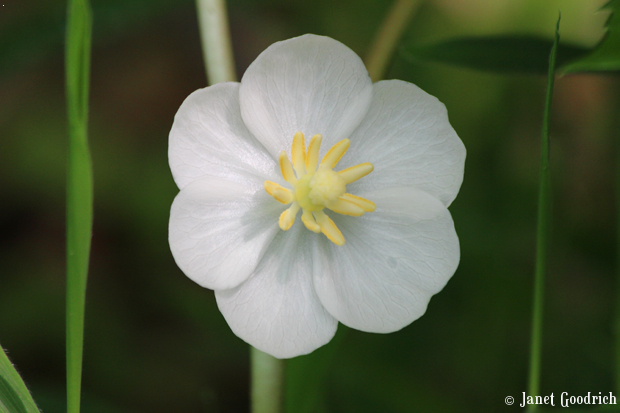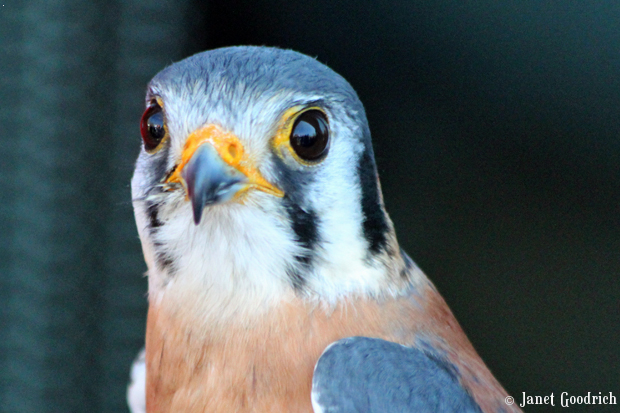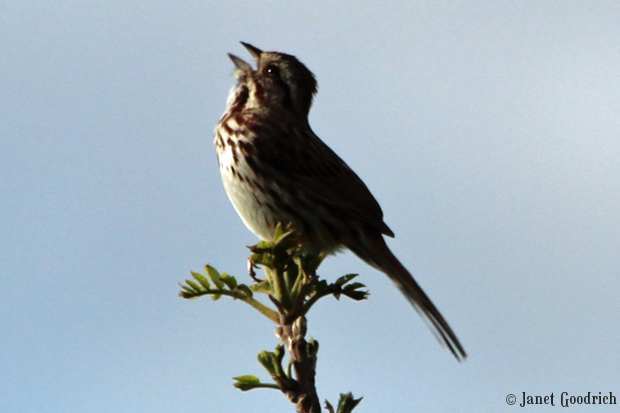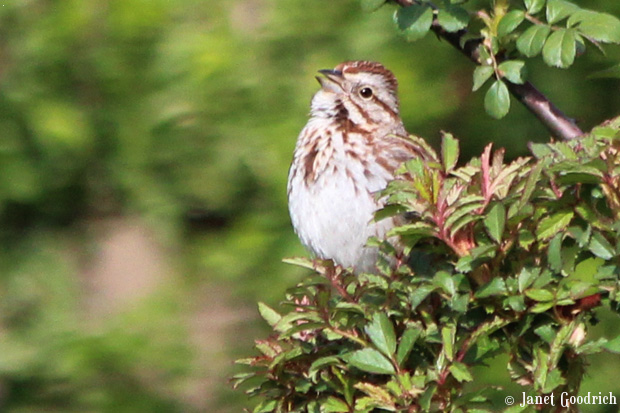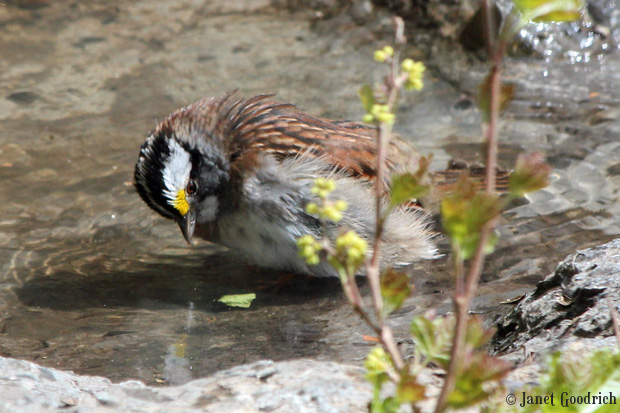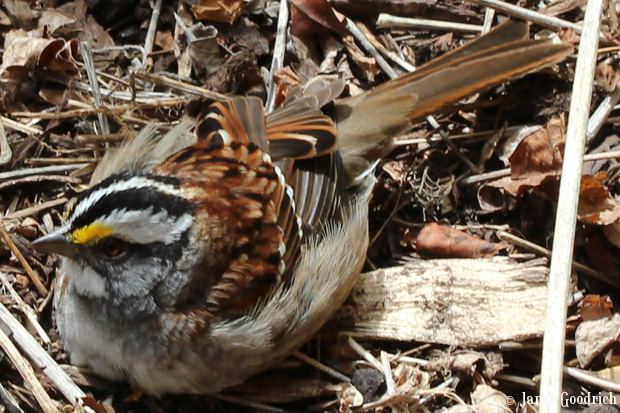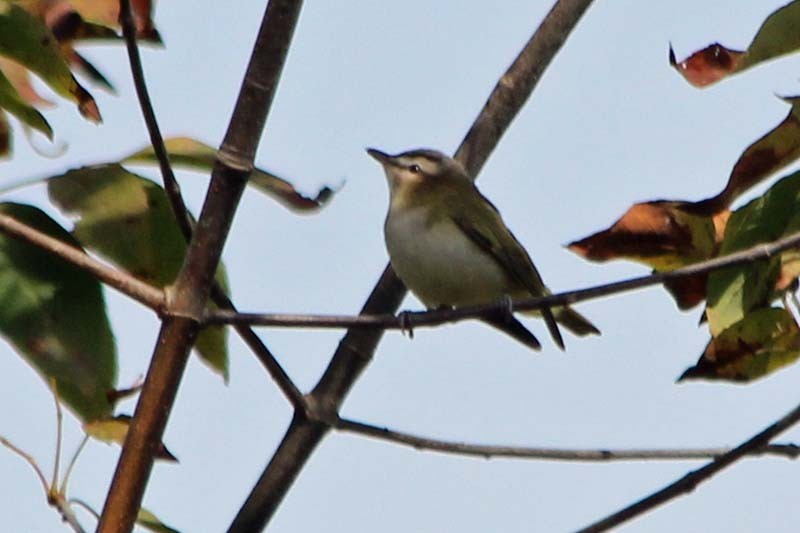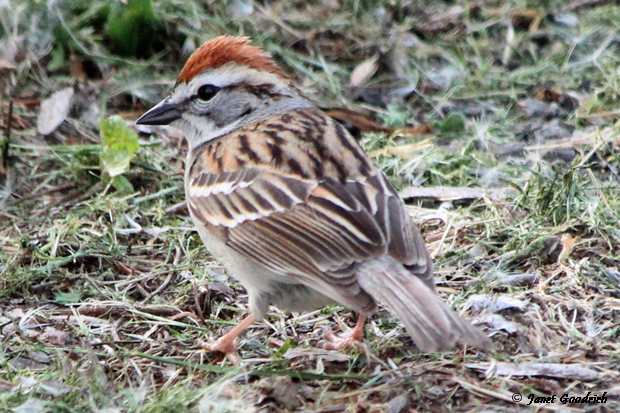
Sparrows
Sparrows are so “common” — little brown birds hopping in the periphery almost everywhere. But last year, it was this little chipping sparrow, who would come to the feeder and throw his head back in song, that jolted me into paying attention to birds.
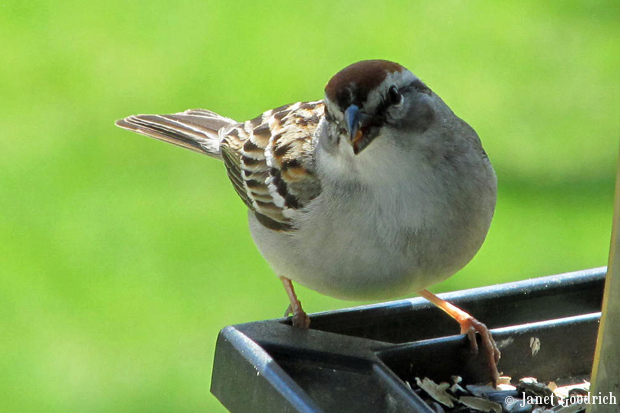 It’s so beautifully colored and marked, and so busy and sociable. Anna Botsford Comstock is quite emphatic in the Handbook of Nature Study about its helpfulness to humans by consuming garden pests, but even without such “utility” it’s appealing.
It’s so beautifully colored and marked, and so busy and sociable. Anna Botsford Comstock is quite emphatic in the Handbook of Nature Study about its helpfulness to humans by consuming garden pests, but even without such “utility” it’s appealing.
Since then I’ve begun to distinguish different kinds of sparrows, and there is an amazing variety. Back in the winter, I noticed tree sparrows for the first time. They’re very similar in appearance to the chipping sparrows, but they stay all winter — the season so nearly bereft of color when it’s overcast, as it was when I snapped this.
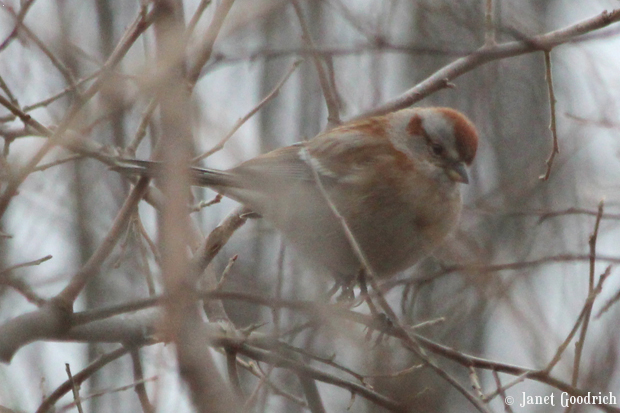 One of the first birds to break the winter silence was the song sparrow. Now that I’m aware of it, I hear it everywhere.
One of the first birds to break the winter silence was the song sparrow. Now that I’m aware of it, I hear it everywhere.
I love the wholeheartedness — head thrown back, belting it out into the morning. Thornton Burgess names him “Little Friend.”
White-throated sparrows, which I’ve always associated with the Adirondacks, stayed here for a few weeks on their way back northward. Till this year I heard but never saw one. Their song is very high and sweet and lonesome, and I would have pictured a more diminutive bird. I think they’re beautiful with that dash of yellow and those crisp stripes. How could I have missed them before this year?
Just a few days ago, I saw another one that’s new to me: a white-crowned sparrow.
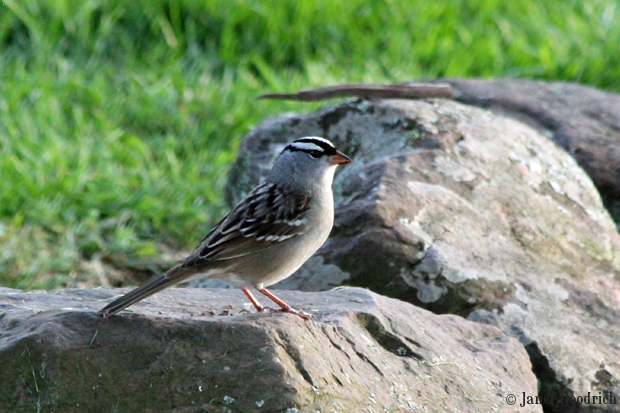 There are also English sparrows, seen everywhere from parking lots to barns to other birds’ nests. I don’t have a photo of one. And there are others that I haven’t seen yet that I have heard or can expect to see — swamp, vesper, and field sparrows, for instance.
There are also English sparrows, seen everywhere from parking lots to barns to other birds’ nests. I don’t have a photo of one. And there are others that I haven’t seen yet that I have heard or can expect to see — swamp, vesper, and field sparrows, for instance.
So many varieties of “common.” I’m reminded of the passage in Zen and the Art of Motorcycle Maintenance where the writing teacher encourages a girl to break through writer’s block not by choosing a larger subject, but a smaller, more narrowly focused one:
He’d been having trouble with students who had nothing to say. At first he thought it was laziness but later it became apparent that it wasn’t. They just couldn’t think of anything to say.
One of them, a girl with strong-lensed glasses, wanted to write a 500-word essay about the United States. He was used to the sinking feeling that comes from statements like this, and suggested without disparagement that she narrow it down to just Bozeman.
When the paper came due she didn’t have it and was quite upset. She had tried and tried but she just couldn’t think of anything to say…
It just stumped him. Now he couldn’t think of anything to say. A silence occurred, and then a peculiar answer: “Narrow it down to the main street of Bozeman.” It was a stroke of insight.
She nodded dutifully and went out. But just before her next class she came back in real distress, tears this time, distress that had obviously been there for a long time. She still couldn’t think of anything to say, and couldn’t understand why, if she couldn’t think of anything about all of Bozeman, she should be able to think of something about just one street.
He was furious. “You’re not looking!” he said. A memory came back of his own dismissal from the University for having too much to say. For every fact there is an infinity of hypotheses. The more you look the more you see. She really wasn’t looking and yet somehow didn’t understand this.
He told her angrily, “Narrow it down to the front of one building on the main street of Bozeman. The Opera House. Start with the upper left-hand brick.”
Her eyes, behind the thick-lensed glasses, opened wide.
She came in the next class with a puzzled look and handed him a five-thousand-word essay on the front of the Opera House on the main street of Bozeman, Montana. “I sat in the hamburger stand across the street,” she said, “and started writing about the first brick, and the second brick, and then by the third brick it all started to come and I couldn’t stop…”
“Nature” is a large subject. But to narrow the focus is to find that it’s even larger, more intricate, more extravagant. You could probably write well over 5,000 words about sparrows alone.
